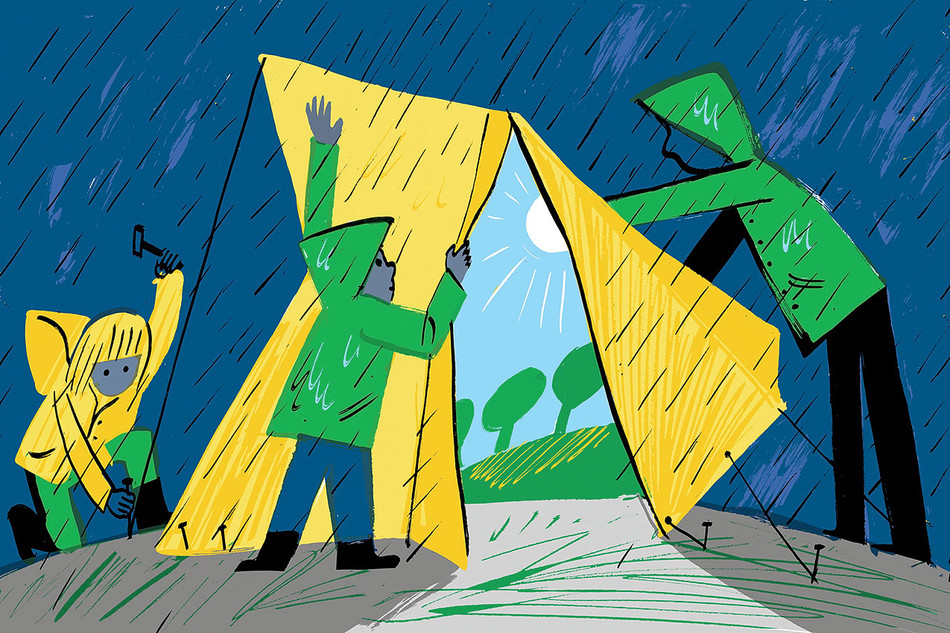Erica Komisar ’90SW is a clinical social worker, psychoanalyst, and parenting expert. Her two books, Being There and Chicken Little, the Sky Isn’t Falling, offer tips for helping children overcome anxiety.
When did you first notice that we — and our children — were living in what you call a “new age of anxiety”?
Two decades ago, I realized that the referrals I was getting were increasingly for younger and younger children. I was a consultant for preschools and primary schools in Manhattan, and I noticed a growing number of children being diagnosed and medicated at an early age for anxiety and depression. I started to look at every bit of research I could get my hands on.
Obviously, no one wants their kids to be anxious or depressed, but how do parents inadvertently contribute to these issues?
The vast majority of parents want the best for their children. But sometimes they don’t know what the best is. Some pressure their kids to get perfect grades. I can’t tell you how many parents bring their children into my office because of a B grade. They’re certain something is wrong.
People have always had expectations of children, but the world has become a more complicated and competitive place. Parents have become more anxious themselves, and they worry that their children won’t be successful. So they push and push and push. Children grow up in an environment where their schools and friends are all pushing. We’re pushing these kids to the brink.
One thing parents can do is take their foot off the gas. Be self-aware and reflective. Take a good long look at yourself and what you value. How do you define success in your child’s life? Shouldn’t it involve their being happy and mentally balanced?
I also see a connection between teen mental-health issues and parents who are distracted and less present. A misperception about adolescents is that they don’t need us. It’s true they don’t need parents in the same way as a zero-to-three-year-old, but they do need help with processing feelings and regulating emotions.
How does technology contribute to the rise in mental-health problems?
The invention of the smartphone really was a downfall, for adults and for kids. There’s an addictive quality to being attached to information and people at all times. It’s like having threat signals sent constantly to your brain — you have to be constantly vigilant.
For adolescent girls especially, social media can amplify what is already the threat-sensing part of their brains; their amygdala is in hyperdrive. It creates anxiety and makes them self-conscious. And it feels like they can never get away from it.
How can parents distinguish normal worry — about a grade, a breakup, a sick relative — from clinical anxiety?
It’s natural for everyone to have a few bad days. But if the signs and symptoms of depression and anxiety last more than two weeks and seem intense, you do want to get help for your child. If you take them to a psychiatrist, they will most likely be medicated. That doesn’t get to the root cause of the issue. You’re medicating symptoms away but not helping that child long-term. Instead, find a feelings-oriented talk therapist who will get to the bottom of things and understand the psychosocial factors in family and school that are having an impact.
One caveat: if your child is suicidal, take them to a psychiatrist right away. Parents should never be afraid of asking a child if they ever consider hurting themselves. Some people think that if you mention it, you’ll put the thought in your child’s head and make it worse. It’s just the opposite. If you mention it, it’s manageable.
What’s the most important advice you can give to parents navigating this new age of anxiety?
Spend as much time as you can with your kids while they’re still living with you, while you still have the opportunity to help them grow up. Be nonjudgmental; have open communication. Being present for your children isn’t about doing things for them excessively or helicopter parenting. It’s about helping them learn to deal with experiences that are overwhelming for them. And there’s a lot that’s overwhelming.




